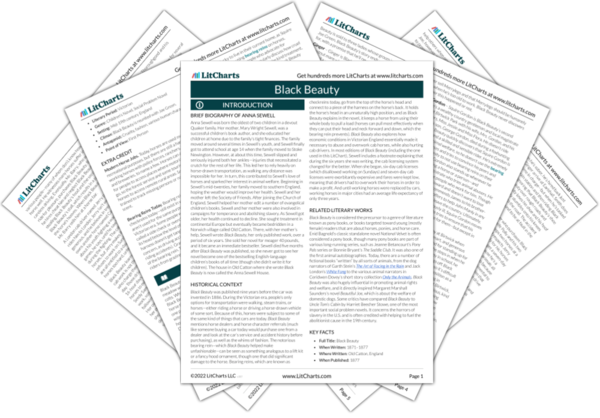Skinner seems to imply that he can’t just put Black Beauty back in a cab since he’d probably just fall again. So in his situation, Black Beauty is useless. The farrier, though, emerges as an advocate for kindness when he suggests resting and feeding Black Beauty in preparation for the sale. Horse sales, remember, aren’t great places for horses, since horses have no control over where they’re going. But it’s a sign of how helpful the food and rest is that Black Beauty is nevertheless able to keep his spirits up as he heads for the sale.
